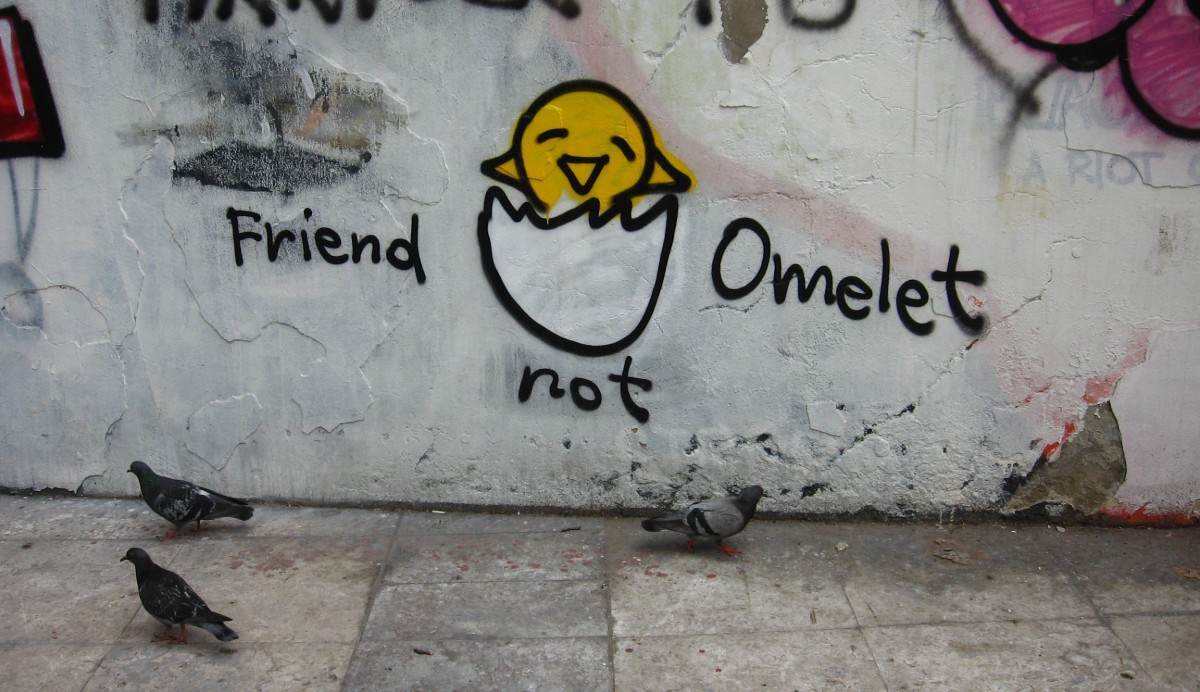How does becoming a vegan affect other people in your household? With veganism on the rise, 300,000 people worldwide are expected to take part in Veganuary this year. There's abundant advice out there on how to go vegan, but the impact of such a dietary change on one’s family is less discussed. In this post, Insa Wemheuer, a PhD student at the Centre for Business, Organisations and Society at the University of Bath School of Management, shares reflections from speaking to households which accommodate vegans and non-vegans alike.
Why do Veganuary? The rise of veganism
Are you or someone in your family “doing” Veganuary this year? If so, you are in good company – 300,000 people worldwide are expected to take part, a tenfold increase since its start 2014. This increase has been driven not only by concern for animal welfare, but also by a growing awareness of the impact of meat production on the environment, as well as a perception that a vegan diet is a healthier diet.
The central role of family food practices for dietary change
However strong your moral or personal motivations, however, changing one’s dietary habits can be very difficult, and particularly if the result is that you’re eating differently from the people around you. Family support is a key factor for successfully maintaining dietary changes.
So – what happens within families where someone decides to go vegan? How does this impact existing food practices within households, and how do family members react to and handle the potential disruption of their existing food routines? This has been the focus of my research, and over the last 18 months I have interviewed more than 40 people who (try to) follow a vegan diet. I’ve also followed around 15 families more closely by both observing them planning, shopping, preparing and eating food, as well as interviewing several family members.
Reflections from the field
Within families, food and eating is complex. It can play a central role in rituals and traditions, convey shared understandings of what “proper food” is and facilitate the construction and expression of a family’s identity. Eating together also means spending time together, expressing care and love for each other and one’s children. Such social aspects are, of course, only part of the shared and often routinised food practices within families. Together with the materiality of the food itself, its embodied aspects of taste and digestion as well as the knowledge and practical skills of how to prepare it, there is a complex system of household food practices that most of us are unaware of as we just “do” them every day.
Consequently, changes in the way one family member eats may lead to unexpected consequences, emotional reactions and conflicts throughout the whole system of food practices.
Practicalities and inconveniences
Firstly, one person going vegan affects other family members by posing the practical issue of food provision - do we stop eating together, have separate meals side-by-side, some kind of patchwork meals, or eat all-vegan dinners? Who is willing to cook and eat what? Feelings of annoyance, anger or fear of loss on the part of the non-vegan are thus not unusual, as the common first reaction of “Okay, but don’t expect me to go vegan” shows.
The willingness of the non-vegan to prepare and/or eat vegan food also proved crucial to overcome other disruptions of “doing family” via food. Offering practical support out of respect for their partner’s choices proved thus one strategy to handle potential conflicts caused by disagreement on the ethical aspects of eating animal produce.
Taste and preference can here be both a bridge if the non-vegan discovers that they enjoy vegan foods, but it can also be another unexpected obstacle for families who find it impossible to cook vegan meals that everyone enjoys. Non-vegans might be supportive in principle, but in reality dislike the vegan alternatives or be simply unwilling to give up certain non-vegan foods. If the result is then that different meals need to be prepared for different family members, or that the vegan has to take sole responsibility for preparing their food (potentially in addition to preparing food for the non-vegans), eating vegan at all mealtimes becomes practically – and potentially also emotionally – difficult.
Moral support
Secondly, if someone has become vegan through moral concerns, this can lead to the non-vegan feeling uncomfortable as they are forced to actively think about, take a stance on and defend their meat-eating. However, thinking this through and respecting the viewpoint that eating animals – or at least their treatment in factory farming – is morally wrong, can help. Even if one is unable or unwilling to eat vegan food due to taste (see above) or nutrition issues, showing respect for others' values can ease the potential practical conflict, as can “defending” the vegan when interacting with the wider family. In other words, providing moral support might be a substitute for practical support.
Communication and compromise
Having to change a family’s shared and routinised food practices due to one person deciding that they want to adopt a vegan diet can cause a range of unexpected consequences, emotional reactions and conflicts. However, the non-vegan’s ability to provide either practical or moral support, and their general openness towards new tastes, moral considerations or scientific knowledge on the environmental and health aspects of meat-eating versus vegan appears to be crucial to working out collaborative and functioning food routines.
Overall, the ability to communicate honestly and openly with each other, to not take things or oneself too seriously, as well as genuine acceptance and respect for each other’ opinions, tastes and practical abilities might help to find a working compromise for everyone involved.
Header image by Ivana Milakovic on Unsplash
Respond



